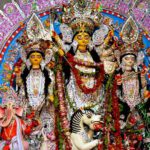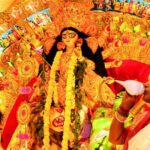Dakhani, the language of Hyderabad, is one that’s unique in the world for being truly secular in nature. Why? Because perhaps no other vernacular represents such an interesting fusion of languages — Arabic, Farsi, Turkish, Telugu, Marathi, and Hindi/Urdu. After all, it’s only fitting that a city that’s considered a melting pot of so many cultures, speaks a language that’s so eclectic and colourful.
A Look at the History of Dakhani
The Indo-Islamic fusion incorporated by the language had the patronage of the ancient rulers of Hyderabad, the Qutub Shahis. It is during their rule, a large number of Indian consonants and vowels were introduced to accommodate speakers of different languages. The introduction of Indian words and phrases, helped Dakhani evolve as a link between various languages, uniting the speakers on a common platform.
According to historians, the Dakhani language developed in the northern parts of India alongside Urdu, which is a Persianised standard register of the Hindustani language. In the 14th century, when the language travelled to the Deccan plateau, it gradually matured into a unique dialect with diverse regional infusions.
Though Dakhani is Deccan’s Islamic-era culture that is pre-Mughal, the language exists even today in several parts of western and southern India. Besides Hyderabad, which is the epicentre of Dakhani culture, traces of the language are still found in Karnataka, Tamilnadu, Kerala, and the Marathwada regions of the Deccan plateau, such as Aurangabad, Pune, and Nagpur.
Amazing Facts About the ‘Hyderabadi’ Language
Over the years, Hyderabad has witnessed a merging of Hindu, Muslim, Andhra, and Telangana cultures. Evidently, the language of Hyderabad is a mix of Telugu, Hindi, and Urdu, having its own sounds and tones. The Telugu spoken in Hyderabad has many Urdu words in it, and similarly, the Urdu spoken here is also distinct, with influences of Marathi, Telugu, and Hindi.
The merger of various languages has given birth to Hyderabad’s own dialect — the Hyderabadi Hindi/Urdu. The unique language of Hyderabad, nonchalant in manner, is a linguistic representation of the cool and unhurried nature of the city and its people. Today, the unforgiving pace of modern day life has not spared most of the Hyderabadis, but their dialect still retains the casually calm and relaxed flavour.
Don’t be amazed if you see a Hyderabadi starting a conversation in Telugu, switching over to Hindi/Urdu, and then, peppering it up with some Marathi or English words while being completely understandable. Since many of the Hyderabadis have relatives abroad, English has found a way into the Dakhani lingo. However, the usage of English in Hyderabad can be pretty misleading. For example, if you hear a local saying – “Aisey advance kamaan nakko karo” – it actually means, “Don’t act smart”!
One thing that is particularly interesting about the Hyderabadi vocabulary is the concept of singular and plural. Here, the use of ‘s’ suffix in English, or the ‘o’ suffix in Hindi, to make a word plural, is not applicable. For instance, ‘yaaron’ or ‘friends’ can be applied to both singular and plural. In some cases, the traditional ‘s’ and ‘o’ suffix for plural words are replaced by ‘aan’, such as logaan (people), or bottlaan (bottles).
Some Interesting Hyderabadi Terminologies
The Hindi word ‘Chahiye’ (want), in Dakhani dialect, is ‘Hona’, which is profusely used in all sorts of Hyderabadi conversations. Chances are, you might be bluntly addressed with “Kya Hona?” in a Hyderabadi store, as in, “Kya Chahiye”, or “What do you want?”
A simple ‘Haan’ or ‘Naa’, meaning ‘Yes’ or a ‘No’, is expressed as ‘Hau’ or a ‘Nakko’ with a typical Hyderabadi accent. Also, asking a question in Dakhani is not as simple as saying ‘Kyun?’ or ‘Why?’. The correct terminology is ‘Kaiku?’
That said, if you are planning to visit Hyderabad, here’s list of words and phrases you should include in your survival kit during your stay in the city:
Hau – Yes
Nakko – No
Mereku – Me
Tereku – You
Hallu Chalo – Go Slow
Kya Hona? – What do you want?
Lite Lo Yaaron – Take it easy
Uno Kya Kathe – What did he say?
Khali Peeli — Simply
Haula – Fool
Seedha Jayo Ekich Road Hai – Go straight, this is the road.
The historic and charming Hyderabad is one of the most prestigious metro cities in India today. Once the city of Nizams, it is now a promising business destination for top multinational companies. Though the dominance of corporate culture is evident all around the city, its influence hasn’t eroded the richness of the language of Hyderabad, its century-old ethos, humour, and absurdity, cherished by people from all walks of life.






